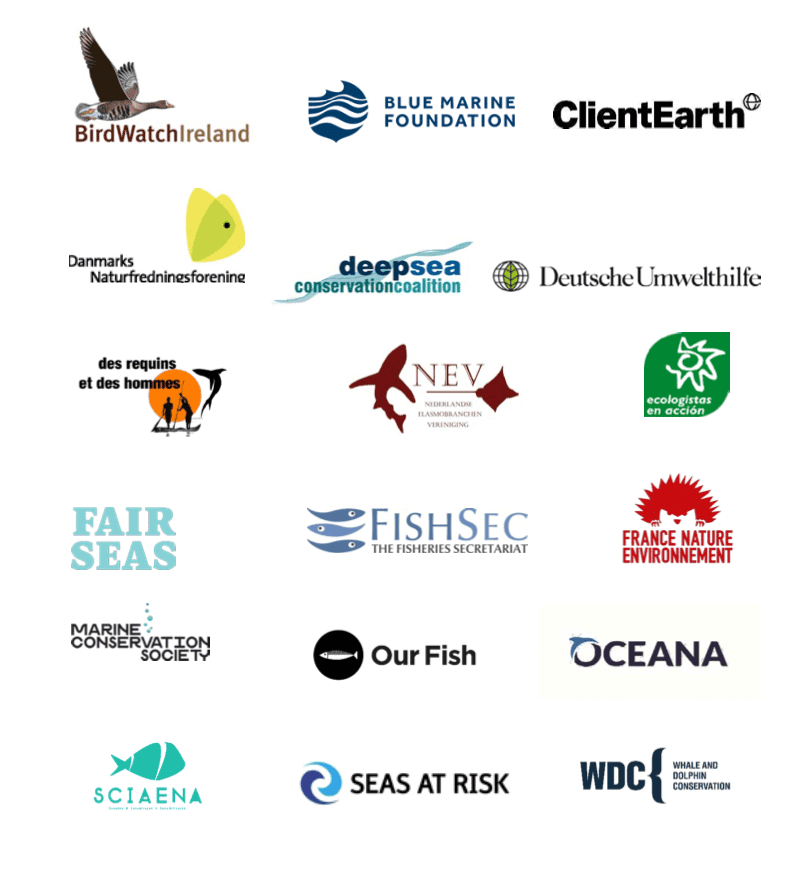28 September 2022
Mr. Virginijus Sinkevičius
Commissioner for Environment, Oceans and Fisheries European Commission
Mr. Ranil Jayawardena MP
Secretary of State for Environment, Food and Rural Affairs UK Government
Subject: Civil Society Urges You to End Overfishing of Shared Stocks
Dear Commissioner, Dear Secretary of State,
Soon, the EU and the UK delegations will be back at the negotiation table to decide on the future of our fisheries in 2023, which will have consequences for years to come. You will set over 100 catch limits for fish stocks shared among the EU, the UK, Norway and other coastal states in the Northeast Atlantic. We urge you to set and reach a clear objective for these negotiations: to significantly improve the state of shared fish populations, for the sake of the environment and the people.
Science-based management is a cornerstone not only of the fisheries chapter of the EU- UK Trade and Cooperation Agreement but is also enshrined in the EU’s Common Fisheries Policy and in the UK’s Fisheries Act. Numerous international agreements, including the United Nations Fish Stocks Agreement, the Convention on Biodiversity and UN Sustainable Development Goal 14, all required fishing at sustainable levels by 2020, a deadline missed both by the EU and the UK.
We remain concerned that the final decisions taken by the EU and the UK behind closed doors are at odds with their public commitments and legal obligations. Both parties claim leadership on tackling the biodiversity and climate crises we all face, but exploitation of fish populations beyond what is sustainable seriously undermines the credibility of such claims. Almost two thirds of the 2022 catch limits involving the UK [1], mostly referring to stocks shared with the EU, were set above scientific advice, and 28% of fully assessed stocks are still overfished in Northeast Atlantic waters [2].
Persistently poor political decisions drive overfishing and hurt economies. For example, after having depleted all European cod populations, the EU and the UK import large amounts of cod from Russia, at high risk of illegal and unsustainable catch [3]. The EU and the UK must follow scientific advice, apply an ecosystem-based approach, and transition to low-impact and climate-friendly fisheries to restore their own fishing resources.
Fisheries are dependent on a healthy environment. Long-term and widespread socio- economic losses will outweigh short-term and private profits if the EU and the UK continue to exceed scientific advice when setting catch limits. Overfishing and destructive practices have been the main cause of marine biodiversity loss for the last 40 years and now we also know that they critically undermine the resilience of fish and other wildlife to the impacts of climate change and their capacity to mitigate it [4].
In the face of accelerating climate change and biodiversity loss, there is no more time to lose. We therefore urge you to finally deliver on your commitments and:
- Set catch limits not exceeding the best available scientific advice provided by the International Council for the Exploration of the Sea, regardless of whether the advice is based on the Maximum Sustainable Yield (MSY) approach or on the data- limited precautionary approach.
- Provide a “climate buffer” and improve population resilience by setting Total Allowable Catches below the maximum catch advice for species particularly vulnerable to the impacts of climate change.
- Apply an ecosystem-based approach when setting catch limits, with special attention to mixed fisheries, interspecies dynamics (e.g., forage species, prey- predator relationships), and the recovery and conservation of the most depleted stocks.
- Eliminate bycatch and discards, increase selectivity, and diligently control fisheries by remote electronic monitoring with cameras and/or appropriate on- board observer coverage.
- Increase transparency of decision-making in line with the UNECE Aarhus Convention on Access to Information, Public Participation in Decision-Making and Access to Justice in Environmental Matters.
We thank you for your time and consideration and hope to see significant progress in ending overfishing in the Northeast Atlantic, as well as a transition to sustainable, climate- smart, transparent fisheries.
Please find our specific recommendations attached. We look forward to meeting you and your departments to discuss them in detail.
Yours sincerely,
Pascale Moehrle, Executive Director, Oceana in Europe
On behalf of:
BirdWatch Ireland, Blue Marine Foundation, ClientEarth, The Danish Society for Nature Conservation, Deep Sea Conservation Coalition, Deutsche Umwelthilfe (DUH), Des Requins et Des Hommes (DRDH), Dutch Elasmobranch Society, Ecologistas en Acción, Fair Seas, The Fisheries Secretariat, France Nature Environnement (FNE), Marine Conservation Society, Our Fish, Sciaena, Seas At Risk, Whale and Dolphin Conservation
1 Bell, E., Nash, R., Garnacho, E., De Oliveira, J., O’Brien, C. (2022). Assessing the sustainability of fisheries catch limits negotiated by the UK for 2020 to 2022. Cefas.
2 Scientific, Technical and Economic Committee for Fisheries (STECF). Monitoring of the performance of
the Common Fisheries Policy (STECF-Adhoc-22-01).
3 Much of Russia’s catch remains unassessed and close to half of its assessed stocks are classified as overfished. Moreover, Russia is currently second (after China) in a global index on illegal, unreported and unregulated fishing (IUU), and its behaviour has worsened since 2019, when it was ranked fourth.
4 IPCC (2019) Special Report on the Ocean and Cryosphere in a Changing Climate. IPBES (2019) Global Assessment Report on Biodiversity and Ecosystem Services.

